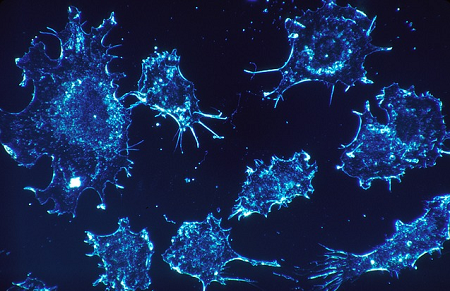Cellular/Computational Model Could Predict Breast Cancer Metastasis

Defining in advance whether breast cancer might invade other organs of the body (a process called metastasis) will help guide treatment options (i.e., conservative versus aggressive treatments). A group of researchers has recently developed a new cellular (in vitro) and computational model that could help predict the risk of metastasis for patients affected by breast cancer. They first co-cultured breast cancer cells (MCF-7 cells) with macrophages obtained from healthy women, in presence of a collagen gel, suitable to simulate breast tissue. As macrophages secrete molecules that play a role in regulating tumor cell invasion into other tissues, scientists measured the number of breast cancer cells able to invade collagen in response to macrophage secreted molecules. Next, by measuring the levels of the secreted molecules and the corresponding rates of invasion, researchers designed a computational model able to successfully predict cancer invasion rate, as demonstrated in nine patients affected by breast cancer. This new model might help design personalized approaches to treat breast cancer. Similar approaches could also assist decision-making for men affected by prostate cancer.
References
- Park KY, Li G, Platt MO. Monocyte-derived macrophage assisted breast cancer cell invasion as a personalized, predictive metric to score metastatic risk. Sci Rep. Published online September 9, 2015.







